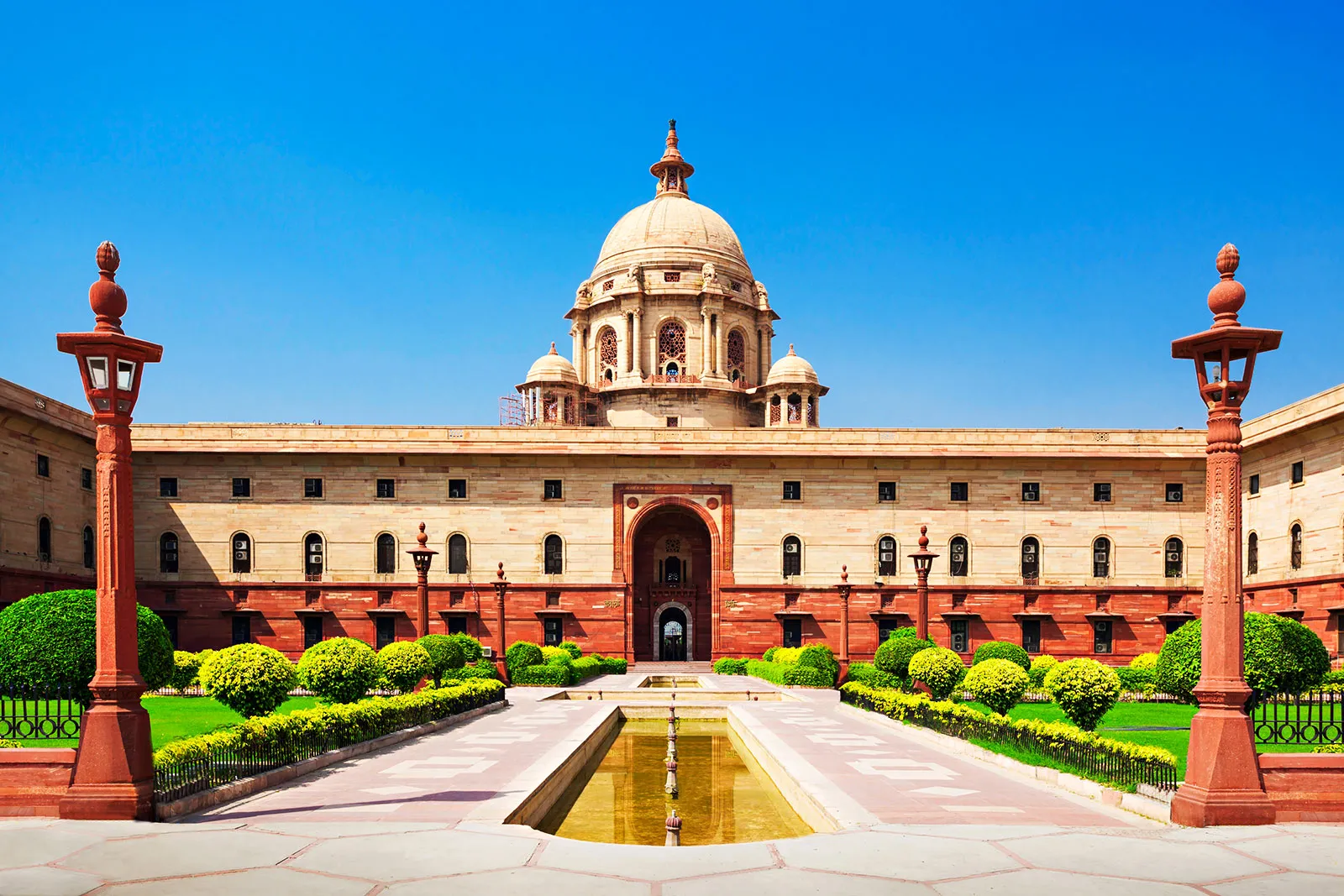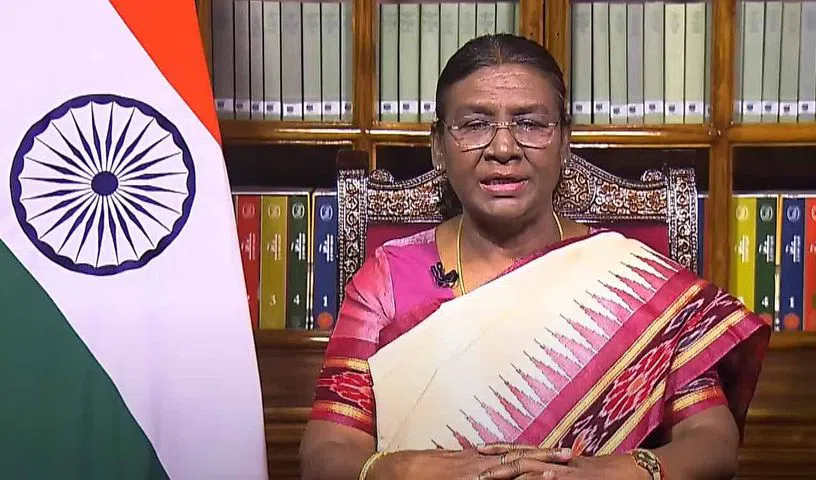- Free Shipping over ₹1000
- 9818228799
- conceptumbook@gmail.com
President of India

Table of Contents
President of India
The President of India serves as the ceremonial head of the executive branch and is often referred to as the “first citizen” of the country. As the Supreme Commander of the Indian Armed Forces, the President holds significant responsibilities, including appointing the Prime Minister, ministers, governors, and judges. Although the role is largely ceremonial, the President ensures that all executive actions adhere to the Constitution, acting as a safeguard against potential misuse of power. The President also has the authority to declare emergencies and grant pardons, making the role vital for maintaining the constitutional framework of the nation.
Role and Responsibilities of the President of India
Constitutional Head:
- The President acts as the guardian of the Constitution, ensuring that all government actions adhere to constitutional principles.
Executive Powers:
- Appoints the Prime Minister, and on their advice, appoints other ministers.
- Appoints key officials, including governors, Supreme Court and High Court judges, and other high-ranking officers.
Legislative Functions:
- Summons and prorogues Parliament sessions.
- Addresses Parliament at the start of each year and the first session after general elections.
- Grants assent to bills passed by Parliament, making them law.
Military Powers:
- Acts as the Supreme Commander of the Indian Armed Forces.
- All significant defense decisions are made in the President’s name.
Diplomatic Functions:
- Represents India in international forums.
- Appoints ambassadors and receives foreign diplomats.
Judicial Powers:
- Has the authority to grant pardons, reprieves, respites, or commutations, especially in cases involving the death penalty.
Emergency Powers:
- Can declare a national emergency, state emergency (President’s Rule), or financial emergency based on the advice of the Council of Ministers.
Election of the President
The President of India is elected indirectly through an Electoral College comprising elected members of both Houses of Parliament and the Legislative Assemblies of States and Union territories.
Eligibility for Election:
- Must be a citizen of India.
- Must have completed 35 years of age.
- Must be eligible to be elected as a member of the Lok Sabha.
- Must not hold any office of profit under the Union or any State government, or any local or other authority.
The Election Commission of India oversees the election process.
Key Points to Remember
- Term: The President serves a five-year term.
- Oath: The President takes an oath to preserve, protect, and defend the Constitution and the law.
- Impeachment: The President can be impeached for violating the Constitution, requiring a two-thirds majority in both Houses of Parliament.
- Veto Power: The President has three types of veto power: Absolute, Suspensive, and Pocket Veto.
- Ordinance Power: The President can promulgate ordinances when Parliament is not in session, which must be ratified by Parliament later.
- Special Address: The President’s address to Parliament is considered a significant statement of the government’s policies and achievements.
List of Presidents of India:
Dr. Rajendra Prasad
- Presidency Number: 1st President
- Date of Birth – Date of Death: 3 December 1884 – 28 February 1963
- Term: 26 January 1950 – 13 May 1962
- Political Party: Indian National Congress
- Home State: Bihar
Dr. Sarvepalli Radhakrishnan
- Presidency Number: 2nd President
- Date of Birth – Date of Death: 5 September 1888 – 17 April 1975
- Term: 13 May 1962 – 13 May 1967
- Political Party: Independent
- Home State: Tamil Nadu
Dr. Zakir Husain
- Presidency Number: 3rd President
- Date of Birth – Date of Death: 8 February 1897 – 3 May 1969
- Term: 13 May 1967 – 3 May 1969
- Political Party: Independent
- Home State: Andhra Pradesh
Varahagiri Venkata Giri (Acting)
- Presidency Number: Interim President
- Date of Birth – Date of Death: 10 August 1894 – 24 June 1980
- Term: 3 May 1969 – 20 July 1969
- Political Party: Independent
- Home State: Odisha
M. Hidayatullah (Acting)
- Presidency Number: Interim President
- Date of Birth – Date of Death: 17 December 1905 – 18 September 1992
- Term: 20 July 1969 – 24 August 1969
- Political Party: Independent
- Home State: Chhattisgarh
Shri Varahagiri Venkata Giri
- Presidency Number: 4th President
- Date of Birth – Date of Death: 10 August 1894 – 24 June 1980
- Term: 24 August 1969 – 24 August 1974
- Political Party: Independent
- Home State: Odisha
Dr. Fakhruddin Ali Ahmed
- Presidency Number: 5th President
- Date of Birth – Date of Death: 13 May 1905 – 11 February 1977
- Term: 24 August 1974 – 11 February 1977
- Political Party: Indian National Congress
- Home State: Delhi
B. D. Jatti (Acting)
- Presidency Number: Interim President
- Date of Birth – Date of Death: 10 September 1912 – 7 June 2002
- Term: 11 February 1977 – 25 July 1977
- Political Party: Independent
- Home State: Karnataka
Shri Neelam Sanjiva Reddy
- Presidency Number: 6th President
- Date of Birth – Date of Death: 19 May 1913 – 1 June 1996
- Term: 25 July 1977 – 25 July 1982
- Political Party: Janata Party
- Home State: Andhra Pradesh
Giani Zail Singh
- Presidency Number: 7th President
- Date of Birth – Date of Death: 5 May 1916 – 25 December 1994
- Term: 25 July 1982 – 25 July 1987
- Political Party: Indian National Congress
- Home State: Punjab
Shri R. Venkataraman
- Presidency Number: 8th President
- Date of Birth – Date of Death: 4 December 1910 – 27 January 2009
- Term: 25 July 1987 – 25 July 1992
- Political Party: Indian National Congress
- Home State: Tamil Nadu
Dr. Shankar Dayal Sharma
- Presidency Number: 9th President
- Date of Birth – Date of Death: 19 August 1918 – 26 December 1999
- Term: 25 July 1992 – 25 July 1997
- Political Party: Indian National Congress
- Home State: Madhya Pradesh
Shri K. R. Narayanan
- Presidency Number: 10th President
- Date of Birth – Date of Death: 27 October 1920 – 9 November 2005
- Term: 25 July 1997 – 25 July 2002
- Political Party: Indian National Congress
- Home State: Kerala
Dr. A. P. J. Abdul Kalam
- Presidency Number: 11th President
- Date of Birth – Date of Death: 15 October 1931 – 27 July 2015
- Term: 25 July 2002 – 25 July 2007
- Political Party: Independent (Supported by BJP)
- Home State: Tamil Nadu
Smt Pratibha Devisingh Patil
- Presidency Number: 12th President
- Date of Birth – Date of Death: 19 December 1934 – Present
- Term: 25 July 2007 – 25 July 2012
- Political Party: Indian National Congress
- Home State: Maharashtra
Shri Pranab Mukherjee
- Presidency Number: 13th President
- Date of Birth – Date of Death: 11 December 1935 – 31 August 2020
- Term: 25 July 2012 – 25 July 2017
- Political Party: Indian National Congress
- Home State: West Bengal
Shri Ram Nath Kovind
- Presidency Number: 14th President
- Date of Birth – Date of Death: 1 October 1945 – Present
- Term: 25 July 2017 – 25 July 2022
- Political Party: Bharatiya Janata Party
- Home State: Uttar Pradesh
Smt. Droupadi Murmu
- Presidency Number: 15th President
- Date of Birth – Date of Death: 20 June 1958 – Present
- Term: 25 July 2022 – Incumbent
- Political Party: Bharatiya Janata Party
- Home State: Odisha
Frequently Asked Questions
The President’s duties include acting as the constitutional head, appointing key officials, summoning and proroguing Parliament, commanding the armed forces, representing India internationally, and exercising judicial and emergency powers.
The President is elected by an Electoral College consisting of elected members of both houses of Parliament and the elected members of the Legislative Assemblies of States and Union territories.
The President can withhold assent to a bill, return it for reconsideration (except in the case of a money bill), or reserve it for the consideration of the President. However, if the bill is passed again by Parliament, the President is obligated to give assent.
The President of India serves a five-year term, but they can be re-elected for additional terms.
During a national emergency, the President can override many constitutional provisions, and the central government gains extensive powers over states. Fundamental rights of citizens can also be suspended.


